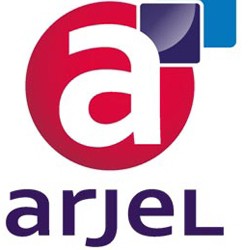France’s Regulator ARJEL Fails To Stem Online Poker Decline

Three years after legalized online poker was launched in France, the country’s gaming regulator ARJEL has seen France’s online poker industry continue its downward trajectory, with last year’s financial report showing a dramatic 13% fall in revenues to €258 million compared to €297 million for 2012. Overall, ring games were down by 18% while tournament revenues showed a slight gain of 5%.
France Reject Shared Player Pool
Despite 2013’s dire financial report, the French online poker industry was far from surprised by the results as for some time now licensed operators have been calling for an overhaul in the current law to allow France to share liquidity with other regulated European internet poker markets, such as Spain and and Italy.
However, just over a month ago French lawmakers rejected ARJEL’s player sharing proposal, leaving little hope for licensed operators in France that the country’s online poker industry will halt its dramatic decline. Even more worryingly is the harsh rhetoric being adopted by certain members of the French parliament, such as Razzy Hammadi, the Rapporteur of the Committee on Economic Affairs, who said a shared European player pool would soon “turn online poker into an uncontrollable ogre eating one market after the other.”
Unfortunately, ARJEL has so far been unsuccessful in changing the negative attitude enveloping France’s poker industry, leading former ARJEL president Jean-Francois Vilotte to resign his position in January, but first warning the industry:
“We have to pay attention to three things: First, that there is a sufficient number of games to be played, as the current regulation allows only Texas hold’em and Omaha. Second, that we carefully think about the liquidity aspect, especially if it refers to a single country. And third, taxation.”
ARJEL Launches Ad Campaign Targeting Unlicensed Sites
After his departure, ARJEL still seems to be making little headway in reversing France’s online poker decline and rather than trying to promote the country’s gambling sites and return French players to the virtual felt, ARJEL has chosen, instead, to launch a public awareness campaign highlighting the risks of playing on unlicensed poker sites.
ARJEL’s campaign is currently being aired across French radio stations, national newspapers and the Web, with the regulator’s advertisement claiming that “You have only to lose when you play on non-ARJEL regulated websites.” The message emphasized in ARJEL’s unconventional advert, which shows men walking around completely nude after having lost even the shirt on their backs, reinforces the organization’s official line that “the theft of personal and bank data and problems when trying to cash winnings are among the main issues players may incur by playing on non-licensed operators.”
Nevertheless, it would seem ARJEL’s awareness campaign against illegal operators would seem to be an unnecessary waste of resources, as most offshore internet poker companies do not accept registrations from French players, including main operators such as Bovada Poker, the Merge Gaming Network, the Equity Gaming Network and Winning Poker Network skins. In addition, those networks have never reported a security breach leading to the theft of personal and bank information, while the most recent example of personal data theft on a mass scale involves Skrill, which is a payment processor in France authorized by ARJEL. Furthermore, the majority of the poker networks use segregated player funds, and often have faster, securer cashout process than many of the licenced French online poker websites.
Consequently, rather than endearing ARJEL to the French poker community, the regulator’s latest campaign is at best most likely to be viewed as a desperate attempt to justify its own relevance in overseeing the French online poker market, and at worse ARJEL’s inaccurate awareness campaign could, instead, end up further damaging the organization’s credibility.
French online poker remains unattractive to players
Meanwhile, I will leave you with the poignant words of former French regulator ARJEL President Jean-François Vilotte, who during his tenure in office was openly critical of the way the French government failed to make its online poker industry attractive to domestic players.
“Poker is going through a difficult time, but this is not something that is happening only in France, as Spain and Italy are experiencing a similar trend as well,” explained Vilotte. “Seen from a broader perspective, this is a problem of legalized markets competing against non-legalized ones. If legalized markets won’t learn how to become more flexible and adjust themselves quicker to what people want, they will keep doing the work for illegal websites and help them to win against their legal competitors.”










